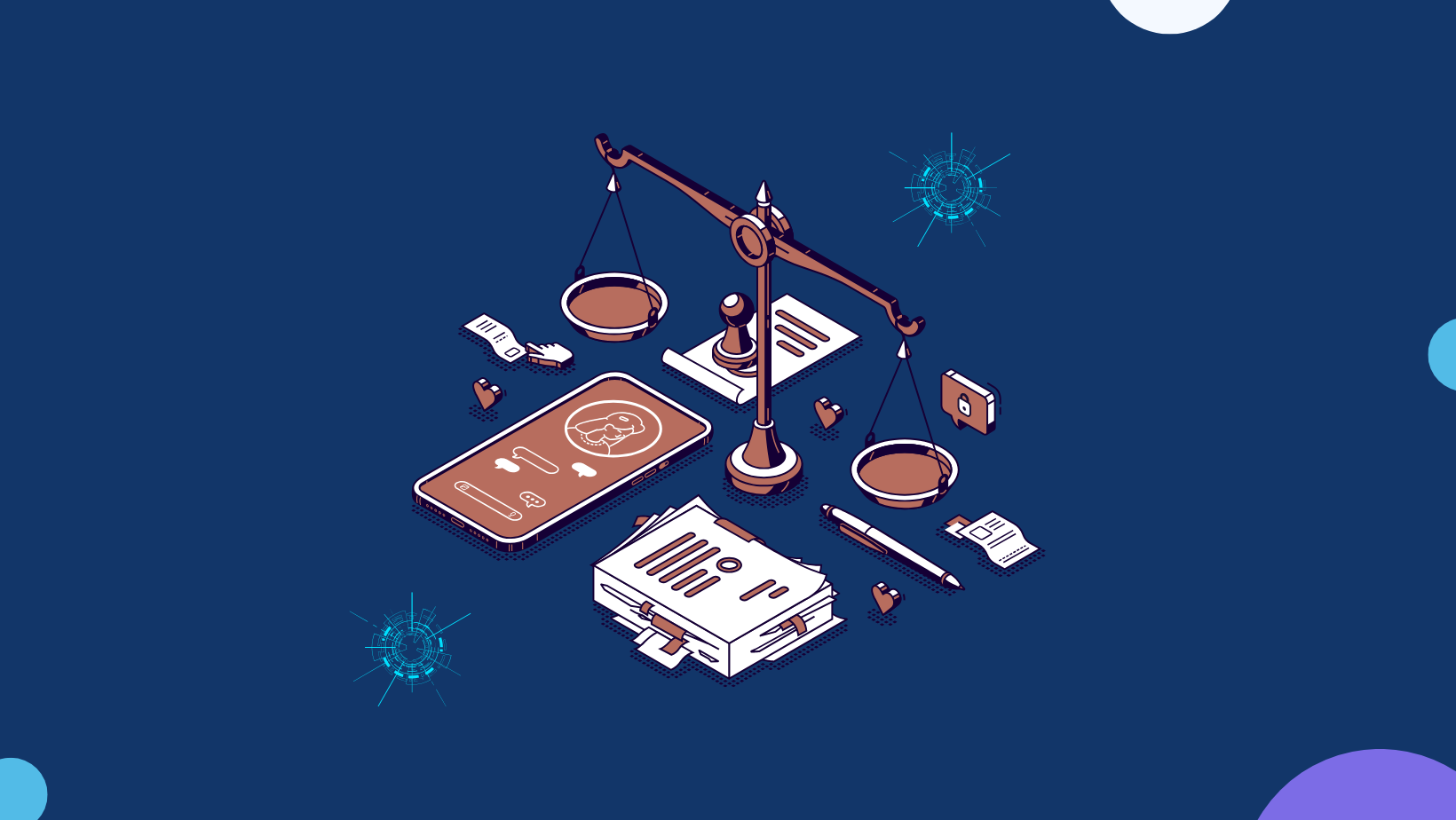As a lawyer, possessing a set of skills that go beyond a basic understanding of the law is crucial to succeed in the legal profession. From communication to problem-solving skills to empathy and emotional intelligence, lawyers need to have a compilation of critical skills that will help you become a successful lawyer.
Being a lawyer is not just about knowing the law, it is about being able to apply the law in real-life situations. The legal profession is highly demanding, and to excel, you need a set of skills that can help you navigate the complex and challenging world of law.
In this article, we will explore the critical skills that every lawyer should have to be successful in their profession.
Image source: Cloudtalk
Communication Skills
Communication is a vital skill that every lawyer should possess. As a lawyer, you will be required to communicate with clients, colleagues, judges, and juries. Effective communication can help you build strong relationships with your clients, negotiate effectively, and win cases.
Research and Analytical Skills
Research and analytical skills are crucial for lawyers. Legal issues can be complex, and you need to be able to analyze and interpret laws and legal documents to provide effective legal advice. This skill is usually developed while studying to become a lawyer, but can be honed and developed to meet up with the changing times.
Problem-Solving and Decision-Making Skills
As a lawyer, having strong problem-solving skills is essential to your success. When you encounter legal issues, your ability to analyze and resolve complex problems will be critical in achieving the best outcome for your clients.
Being a skilled problem solver means that you can identify the key issues at hand, gather relevant information, and develop creative solutions to complex problems. It also means that you can anticipate potential obstacles and develop contingency plans to overcome them.
Time Management and Organization Skills
Lawyers are often required to handle multiple cases simultaneously, and time management and organization skills are crucial for success. As a lawyer, it’s crucial for you to have excellent time management and organization skills. With the demanding nature of your profession, you need to be able to juggle multiple tasks simultaneously, meet deadlines, and provide high-quality work for your clients.
Without proper time management skills, you may find yourself overwhelmed with work and unable to meet the expectations of your clients. This could lead to a damaged reputation and a loss of business.
Additionally, organization skills are essential for lawyers as you need to keep track of vast amounts of information and paperwork. Disorganized files and notes could lead to errors, missed deadlines, and a lack of preparation for cases.
Image source: Timetac
Teamwork and Collaboration Skills
Lawyers often work in teams, and the ability to collaborate effectively is essential. You may be working on complex cases that require the input and expertise of multiple individuals, including other lawyers, paralegals, and support staff.
Being able to work effectively with others on your team allows you to divide and conquer tasks, share knowledge and ideas, and ensure that everyone is working toward a common goal. Collaboration skills also help to foster a sense of unity and mutual support among team members, leading to increased motivation and productivity.
Clients are more likely to trust and recommend lawyers who work well with others and are able to communicate effectively with all parties involved in a case. Similarly, lawyers who can collaborate effectively with other legal professionals are more likely to build a strong network of contacts and referrals.
Empathy and Emotional Intelligence
Empathy and emotional intelligence are critical skills for lawyers to develop. Firstly, empathy is essential because it allows you to understand and connect with your clients on a deeper level.
When people come to you seeking legal assistance, they’re often going through a difficult time in their lives. They may be feeling scared, anxious, or overwhelmed, and it’s your job to put them at ease and reassure them that you’re there to help. By showing empathy, you can demonstrate that you understand what they’re going through and that you’re committed to finding a solution that works for them.
Secondly, emotional intelligence is important because it enables you to communicate effectively with your clients, judges, and opposing counsel. As a lawyer, you’ll need to be able to read people’s emotions and respond appropriately to them. For example, if you’re in court arguing a case, you’ll need to be able to gauge the judge’s mood and adjust your arguments accordingly. Similarly, if you’re negotiating with opposing counsel, you’ll need to be able to pick up on subtle cues and use them to your advantage.
Public Speaking Skills
Public speaking is an essential skill for lawyers, especially for those who appear in court. You will need to communicate with clients, judges, juries, and other legal professionals effectively. Your ability to persuade and convince others is directly linked to your public speaking skills.
When you are in court, your public speaking skills and intelligence will be put to the test. You will need to present your arguments in a clear and concise manner, while also being able to respond to questions and objections from opposing counsel. A lawyer with strong public speaking skills will be able to keep their audience engaged and focused on their message.
Furthermore, you will need to be able to communicate legal concepts and advice to your clients in a way that they can understand. You may also need to speak at public events or give presentations to potential clients. In the legal profession having strong public speaking will help you to communicate effectively and build trust with your audience.
Negotiation Skills
Negotiation is a top skill for succeeding in the legal profession, as many legal issues can be resolved through negotiation rather than litigation.
Having strong negotiation skills is incredibly important. In fact, it can be the difference between winning and losing a case or securing a favorable outcome for your client. Negotiation skills allow you to effectively communicate with opposing counsel, judges, and other parties involved in a case in order to reach a mutually beneficial agreement.
With strong negotiation skills, you can work to minimize conflict and find common ground between all parties involved. This can lead to faster and more cost-effective solutions for your clients, as well as improved relationships with opposing counsel and other legal professionals.
Writing Skills
Writing is one of the most important skills a lawyer must have, even before they’re qualified to become a lawyer. Effective communication through writing is one of the most critical aspects of being a successful lawyer. Whether you are drafting legal documents, communicating with clients, or presenting your arguments in court, your writing must be clear, concise, and persuasive.
First and foremost, your writing is the primary way that you communicate with clients. It is essential that you are able to explain complex legal concepts in a way that is easy for your clients to understand. Your clients rely on your ability to provide them with accurate information and advice, and your writing must reflect that.
Additionally, as a lawyer, you will be responsible for drafting legal documents such as contracts, pleadings, and motions. These documents must be written in a way that is both legally sound and easy for others to understand. Your writing must be clear, concise, and persuasive to ensure that your arguments are heard and understood.
Finally, your writing will play a critical role in your ability to argue your cases effectively in court. The judges and other legal professionals who will be reviewing your arguments will base their decisions in part on how well you are able to present your ideas in writing. You must be able to construct well-written and well-reasoned legal arguments that are persuasive and compelling.
Attention to Detail
Legal issues often require a high degree of accuracy and precision. Paying close attention to details and the fine print is a skill that is non-negotiable for lawyers.
This skill allows you to carefully analyze complex legal documents and contracts, ensuring that every detail is accurate and no important information is missed. When working on a case, paying attention to even the smallest details can make a significant difference in the outcome of the case.
In addition,this skill allows you to identify potential issues or mistakes before they become significant problems. By catching these issues early on, you can take steps to correct them, which can save you and your clients time and money.
This skill also demonstrates your professionalism and competence to your clients, colleagues, and the court. It shows that you take your work seriously and that you are committed to providing the best possible service to your clients.
Adaptability
The legal profession itself is evolving as new cases are heard and new legislation are enacted. So also, should a lawyer evolve through the years to become adaptable.
Being adaptable means that you are flexible and can adjust to changing circumstances quickly. You must be able to adapt to changes in the law and the legal industry to provide the best possible service to your clients. It’s important to stay up-to-date on changes in the law and to continually learn new skills and techniques.
Adaptability also means that you can handle unexpected challenges and obstacles that arise in your practice. You must be able to think creatively and find innovative solutions to problems. Being adaptable means that you can pivot your strategy or approach to meet your clients’ changing needs.
Image source: Rice University
Creativity
It’s important for you to be creative in the legal profession because it allows you to approach legal problems in new and innovative ways. This can be especially important when dealing with complex cases that don’t have obvious solutions.
Being creative also allows you to think outside the box and come up with novel arguments that could be persuasive in court. It allows you to present your case in a unique and compelling way, which may be able to sway the judge or jury in your favor.
In addition, creativity can help you develop more effective strategies for your clients. Whether you’re trying to negotiate a settlement or develop a litigation plan, having a creative mindset can help you come up with solutions that meet your clients’ needs and objectives.
Conclusion
Being a successful lawyer requires more than just a knowledge of the law. To excel in the legal profession, you need a set of skills that can help you navigate complex legal issues, build strong relationships with clients, and communicate effectively with others.
If you work on developing and honing the skills mentioned in this article, you’ll be setting yourself up for success in the coming years.







